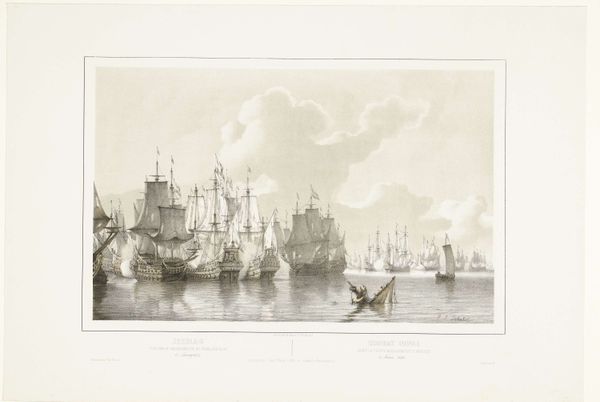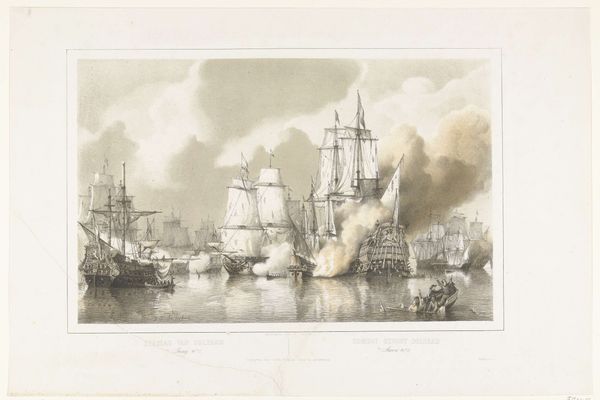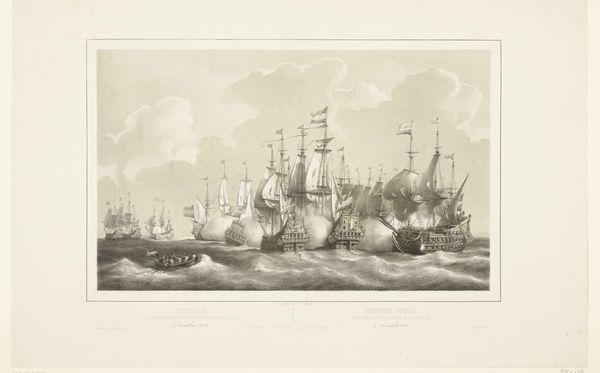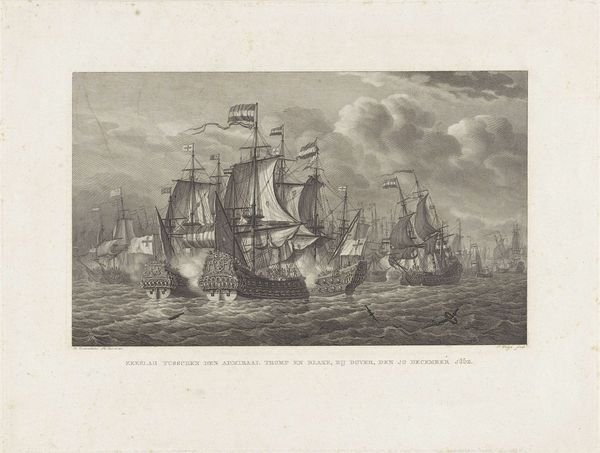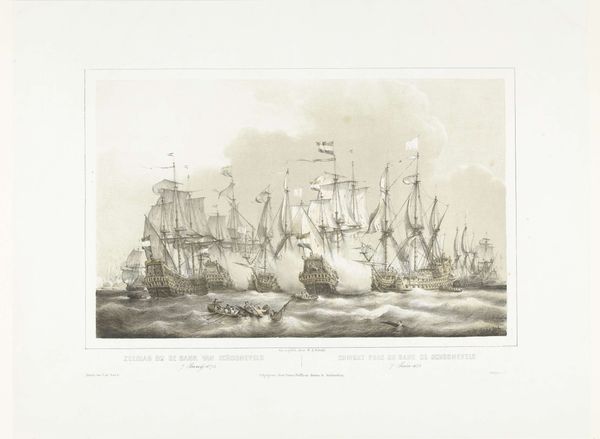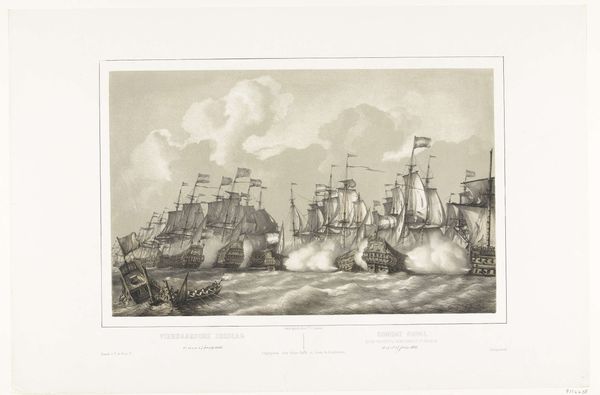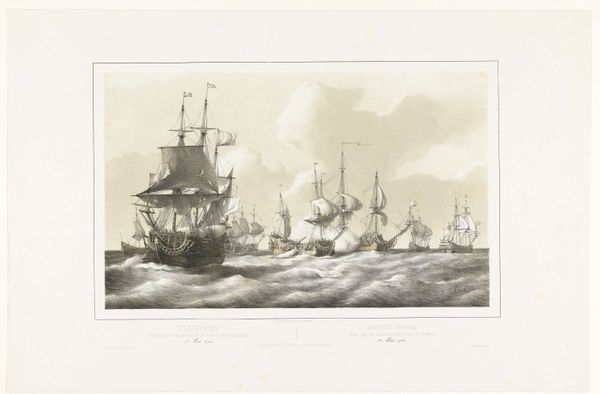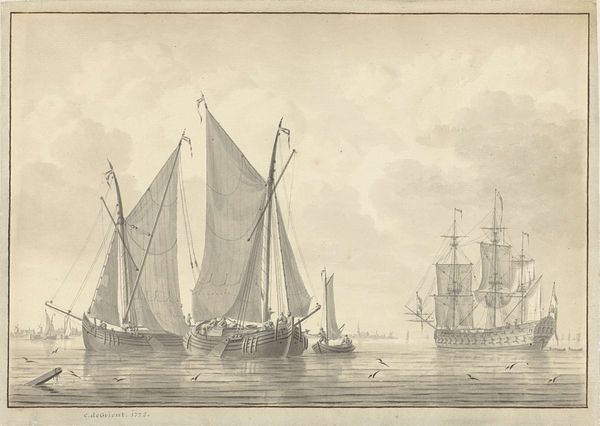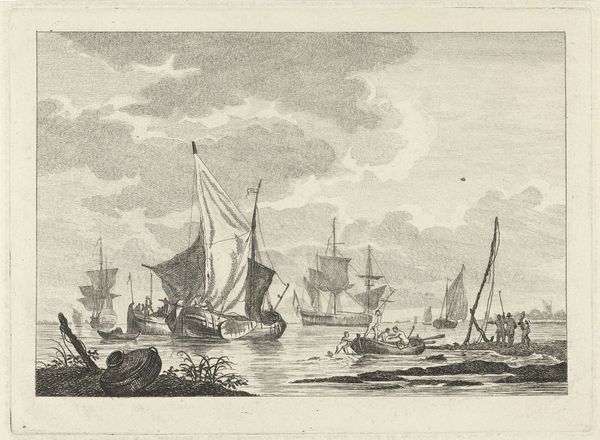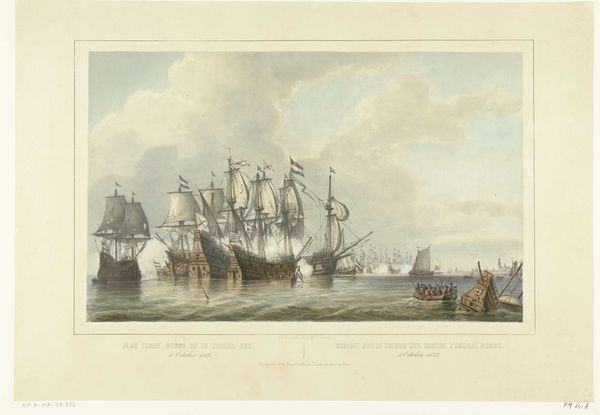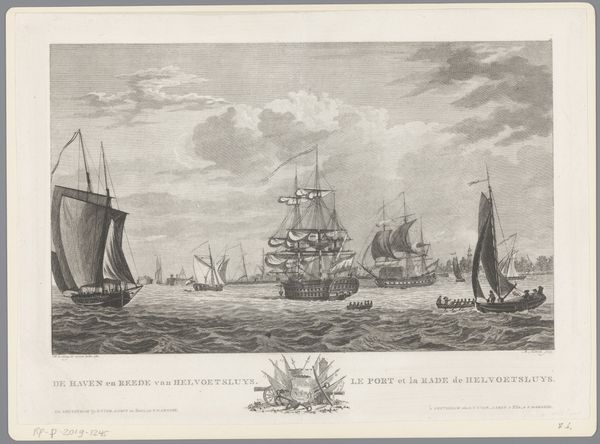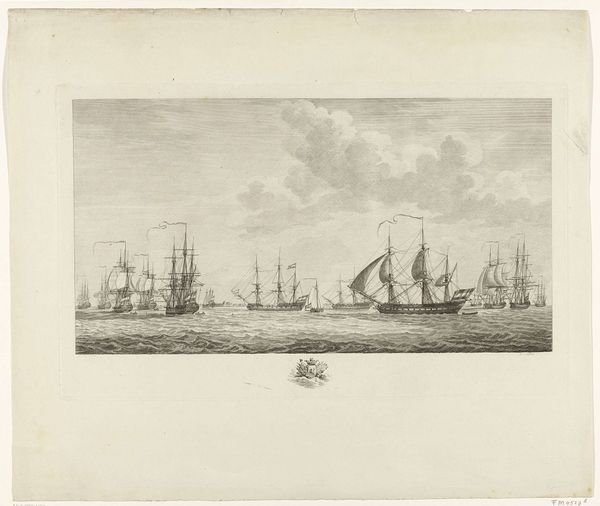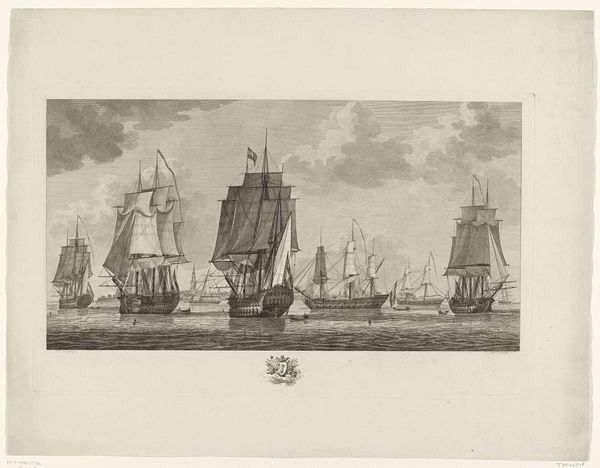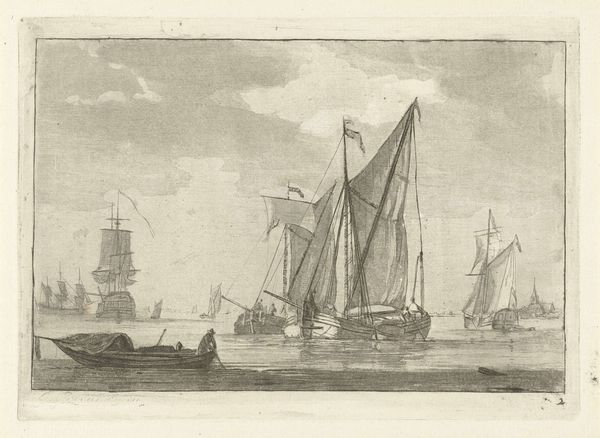
print, etching, engraving
# print
#
etching
#
landscape
#
history-painting
#
engraving
Dimensions: height 354 mm, width 524 mm
Copyright: Rijks Museum: Open Domain
Petrus Johannes Schotel made this print of ‘Het veroveren van de Royal Charles, 1667’ sometime between 1808 and 1865. It uses the technique of lithography, which involves drawing with a greasy crayon on a flat stone or metal plate, then using ink to print the image. Lithography was the cutting edge of mass media in the 19th century, but Schotel uses it here to depict an event from much earlier: the Dutch capture of an English flagship during the Second Anglo-Dutch War. The image shows a specific moment of military triumph, but also alludes to the broader context of international trade, naval power, and resource extraction. It is a powerful image of how the economic power of the Netherlands rose to prominence in the 17th century, creating a demand for images like this one. Schotel's print reminds us that even images of great historical events are produced by someone, using a process, and serving a purpose in their own time. By appreciating the lithographic technique, we can appreciate that this is more than just a picture. It’s a crafted object, embedded in its own world of materials, making, and historical context.
Comments
No comments
Be the first to comment and join the conversation on the ultimate creative platform.
